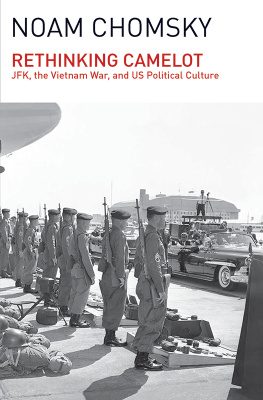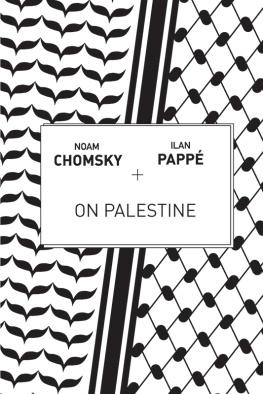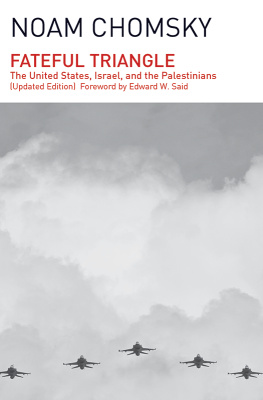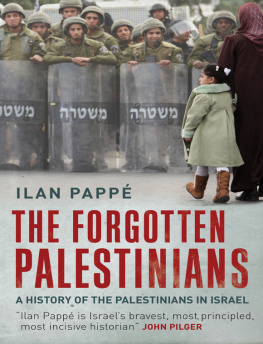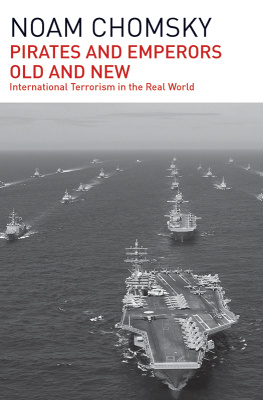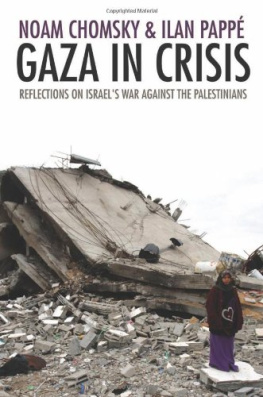Contents
Click on number to go to page
Foreword
F
ateful Triangle may be the most ambitious book ever attempted on the conflict between Zionism and the Palestinians viewed as centrally involving the United States. It is a dogged expos of
human corruption, greed, and intellectual dishonesty. It is also a great and important book, which must be read by anyone concerned with public affairs.
The facts are there to be recognized for Chomsky, although no one else has ever recognized them so systematically. His mainly Israeli and U.S. sources are staggeringly complete, and he is capable of registering contradictions, distinctions, and lapses which occur between them.
There is something profoundly moving about a mind of such noble ideals repeatedly stirred on behalf of human suffering and injustice. One thinks here of Voltaire, of Benda, or Russell, although more than any one of them, Chomsky commands what he calls realityfactsover a breathtaking range. Fateful Triangle can be read as a protracted war between fact and a series of mythsIsraeli democracy, Israeli purity of arms, the benign occupation, no racism against Arabs in Israel, Palestinian terrorism, peace for Galilee. Having rehearsed the official narrative, he then blows it away with vast amounts of counter-evidence.
Chomskys major claim is that Israel and the United Statesespecially the latterare rejectionists opposed to peace, whereas the Arabs, including the PLO, have for years been trying to accommodate themselves to the reality of Israel. Chomsky supports his case by comparing the history of the Palestinian-Israeli conflictso profoundly inhuman, cynical, and deliberately cruel to the Palestinian peoplewith its systematically rewritten record as kept by those whom Chomsky calls the supporters of Israel. It is Chomskys contention that the liberal intelligentsia (Irving Howe, Arthur Goldberg, Alan Dershowitz, Michael Walzer, Amos Oz, Jane Fonda, Tom Hayden, Shlomo Avineri, Martin Peretz) and even segments of the organized Left are more culpable, more given to lying, than conservatives are.
Nor is Chomsky especially gentle to the PLO, whose self-destructiveness and suicidal character he criticizes. The Arab regimes, he says, are not decent, and, he might have added, not popular either.
In the new edition, Chomsky includes invaluable material on the Oslo and Wye accordsan unnecessary line of Arab capitulation by which Israel has achieved all of its tactical and strategic objectives at the expense of every proclaimed principle of Arab and Palestinian nationalism and struggle. For the first time in the twentieth century, an anti-colonial liberation movement has not only discarded its own considerable achievements but has made an agreement to cooperate with a military occupation before that occupation has ended.
Witnessing such a sorry state of affairs is by no means a monotonous, monochromatic activity. It involves what Foucault once called a relentless erudition, scouring alternative sources, exhuming buried documents, reviving forgotten (or abandoned) histories. It involves a sense of the dramatic and of the insurgent, making a great deal of ones rare opportunities to speak. There is something profoundly unsettling about an intellectual such as Chomsky who has neither an office to protect nor territory to consolidate and guard. There is no dodging the inescapable reality that such representations by intellectuals will neither make them friends in high places nor win them official honors. It is a lonely condition, yes, but it is always a better one than a gregarious tolerance for the way things are.
Edward W. Said
New York, New York January 1999
Preface to the Updated Edition
F
or some time, Ive been compelled to arrange speaking engagements long in advance. Sometimes a title is requested for a talk scheduled several years ahead. There is, Ive found, one title that always works: The current crisis in the Middle East.
One cant predict exactly what the crisis will be far down the road, but that there will be one is a fairly safe prediction.
That will continue to be the case as long as basic problems of the region are not addressed.
Furthermore, the crises will be serious in what President Eisenhower called the most strategically important area in the world. In the early post-War years, the United States in effect extended the Monroe Doctrine to the Middle East, barring any interference apart from Britain, assumed to be a loyal dependency and quickly punished when it occasionally got out of hand (as in 1956). The strategic importance of the region lies primarily in its immense petroleum reserves and the global power accorded by control over them; and, crucially, from the huge profits that flow to the Anglo-American rulers, which have been of critical importance for their economies. It has been necessary to ensure that this enormous wealth flows primarily to the West, not to the people of the region. That is one fundamental problem that will continue to cause unrest and disorder. Another is the Israel-Arab conflict with its many ramifications, which have been closely related to the major U.S. strategic goal of dominating the regions resources and wealth. For many years, it was claimed the core problem was Soviet subversion and expansionism, the reflexive justification for virtually all policies since the Bolshevik takeover in Russia in 1917. That pretext having vanished, it is now quietly conceded by the White House (March 1990) that in past years, the threats to our interests in the Middle East could not be laid at the Kremlins door; the doctrinal system has yet to adjust fully to the new requirements. In the future, we expect that nonSoviet threats to [our interests will command even greater attention, the White House continued in its annual plea to Congress for a huge military budget. In reality, the threats to our interests, in the Middle East as elsewhere, had always been indigenous nationalism, a fact stressed in internal documents and sometimes publicly.
A worst case prediction for the crisis a few years ahead would be a war between the U.S. and Iran; unlikely, but not impossible.
Israel is pressing very hard for such a confrontation, recognizing Iran to be the most serious military threat that it faces. So far, the U.S. is playing a somewhat different game in its relations to Iran; accordingly, a potential war, and the necessity for it, is not a major topic in the media and journals of opinion here.
The U.S. is, of course, concerned over Iranian power. That is one reason why the U.S. turned to active support for Iraq in the late stages of the Iraq-Iran war, with a decisive effect on the outcome, and why Washington continued its active courtship of Saddam Hussein until he interfered with U.S. plans for the region in August 1990. U.S. concerns over Iranian power were also reflected in the decision to support Saddams murderous assault against the Shiite population of southern Iraq in March 1991, immediately after the fighting stopped. A narrow reason was fear that Iran, a Shiite state, might exert influence over Iraqi Shiites. A more general reason was the threat to stability that a successful popular revolution might pose: to translate into English, the threat that it might inspire democratizing tendencies that would undermine the array of dictatorships that the U.S. relies on to control the people of the region.
Recall that Washingtons support for its former friend was more than tacit; the U.S. military command even denied rebelling Iraqi officers access to captured Iraqi equipment as the slaughter of the Shiite population proceeded under Stormin Normans steely gaze.
Similar concerns arose as Saddam turned to crushing the Kurdish rebellion in the North. In Israel, commentators from the Chief of Staff to political analysts and Knesset members, across a very broad political spectrum, openly advocated support for Saddams atrocities, on the grounds that an independent Kurdistan might create a Syria-Kurd-Iran territorial link that would be a serious threat to Israel. When U.S. records are released in the distant future, we might discover that the White House harbored similar thoughts, which delayed even token gestures to block the crushing of Kurdish resistance until Washington was compelled to act by a public that had been aroused by media coverage of the suffering of the Kurds, recognizably Aryan and portrayed quite differently from the southern Shiites, who suffered a far worse fate but were only dirty Arabs.
Next page



